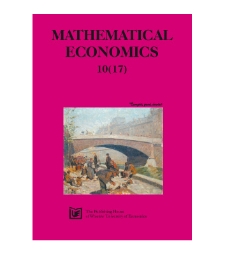Object
Title: Controlling the effect of multiple testing in Big Data
Creator:
Description:
Mathematical Economics, 2014, Nr 10 (17), s. 5-16
Abstrakt:
Publisher:
Wydawnictwo Uniwersytetu Ekonomicznego we Wrocławiu
Place of publication:
Date:
Resource Type:
Resource Identifier:
doi:10.15611/me.2014.10.01 ; oai:dbc.wroc.pl:29266
Language:
Relation:
Mathematical Economics, 2014, Nr 10 (17)
Rights:
Wszystkie prawa zastrzeżone (Copyright)
Access Rights:
Dla wszystkich w zakresie dozwolonego użytku
Location:
Object collections:
- Lower Silesian Digital Library > Participants of the Consortium > 04. Wroclaw University of Economics > Periodicals published by the University Publishing House > Mathematical Economics
- Lower Silesian Digital Library > Resources > 2. Czasopisma > Czasopisma współczesne
Last modified:
Oct 17, 2019
In our library since:
Aug 27, 2015
Number of object content hits:
331
All available object's versions:
https://dbc.wroc.pl/publication/32722
Show description in RDF format:
Show description in OAI-PMH format:
| Edition name | Date |
|---|---|
| Controlling the effect of multiple testing in Big Data | Oct 17, 2019 |
Similar
Denkowska, Sabina
Tabakow, Marta Korczak, Jerzy Franczyk, Bogdan
Denkowska, Sabina
Denkowska, Sabina
























